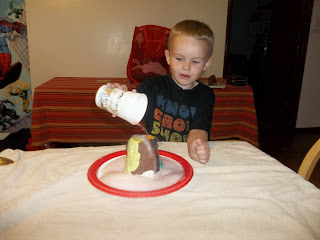I borrowed several books from my friend Pam this past year. As usual, I liked all the books since we usually have the same taste in books. I've been meaning to blog about one of the books for several months. Since I'm down to the last week or so before Button arrives, I thought I would recommend the book finally:
Nurtureshock. It has been out a few years (2009) but still relevant.
The book discusses how there's a lot of beliefs by parents out there that aren't supported by the research. Topics include praise, sleep, race, lying, gifted children, sibling rivalry, teen rebellion, self-control, getting along with others, and early talkers. Even though not all of the topics were subjects of concern for me, there were a few that really struck a chord with me.
I especially liked the ones about sleep and race. It discussed how children are getting an hour less of sleep than they did thirty years ago. This loss of sleep is tied to loss of IQ points, emotional well-being, ADHD, and obesity. I think I found this chapter interesting because I know that when the boys don't get enough sleep, life is not fun. Reading this chapter confirmed my own suspicions.
The other topic about race stuck out to me because I was doing what the research suggests NOT to do. The title of the chapter is called, "Why White Parents Don't Talk About Race." The chapter discusses how many times, white parents do not talk about race with their children because they believe that pointing it out will create racism and stereotypes. The result? We (including I, a white parent) ignore it. We shush our kids when they point it out. Research shows though that children not only notice race and skin color, they begin to form ideas about it at an early age. At the same time I was reading this chapter, I realized both boys would use skin color to describe someone. We attend a racially-diverse church. C was pointing out skin color and different hair types regularly when he would talk about his new school friends; his school is about 50% black and 50% white. Reading this book calmed down my paranoia that my kids were being inappropriate. Instead of ignoring race and skin color, we should use the observations our kids are making to discuss equality and discourage stereotypes. As a result, C and I have had some good conversations; hopefully, good conversations that will help mold him into a good man one day.
I highly recommend all people who work with children or have children to read this book.

















































